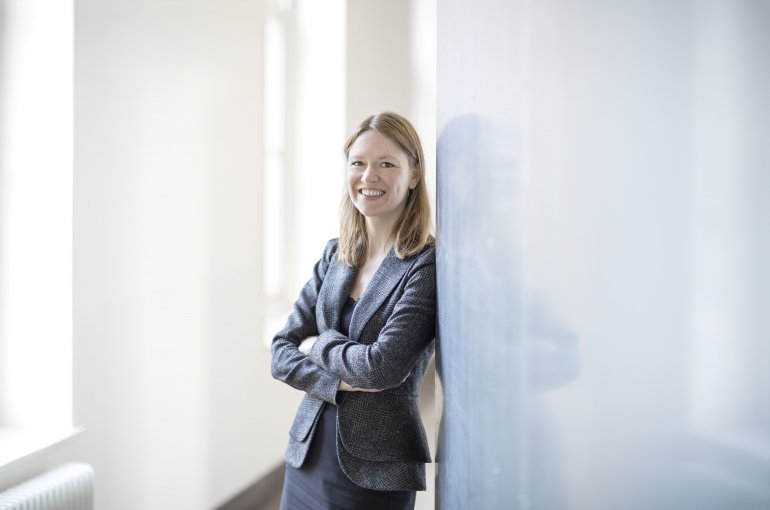Elaine Mak is new vice dean of Education
An interview about the importance of diversity

"When I started teaching in Utrecht two years ago, I immediately noticed that the student population I saw in front of me was less diverse than at Erasmus University." One of the issues that Utrecht Young Academy member Elaine Mak wants to focus on in her new role as vice dean of Education.
The universities of Rotterdam and Amsterdam can draw from a more multicultural melting pot than Utrecht. Is that comparison fair?
"The university attracts many students from the city and its immediate surroundings, that's true. You see that regional function of universities throughout the country. However, our faculty could and should be an even better reflection of society. I spoke to students who felt more at home in Rotterdam than at the same programme in Utrecht. Purely because there were in Rotterdam, more students who, like them, had a different cultural background or were the first in their family to go to university. We have to take that into consideration. As an academic environment, we need multiple perspectives on a subject and critical input from different ideas during a class or a working group. Our faculty must also be open and accessible to every student. This applies to all programmes, so this is typically something I want to focus on, now I'm on the faculty board."
More students with a different cultural background, more students who are - Dutch or not - first generation students. Wonderful, but how do we accomplish this?
"Students as ambassadors are very important. Let them share their experiences! When providing information during Open Days, it is important to have speakers and parts of the programme that appeal to a diverse audience and that people can relate to. I'm also fan of a UU-wide initiative like InclUUsion for refugee students or the Debuut initiative. In Debuut, school pupils who do not easily come into contact with the university because of their background are linked to a student who has also experienced this. Having a buddy, going to weekend school, all good steps. I believe it is worthwhile to paint children a picture, at an early age, of what is possible for them at university. And once students are inside, we are not done. First-generation students sometimes need just a bit more encouragement, to use all the opportunities there are, during their studies. In Rotterdam there was a group for this, called the "Equal" programme, in which researchers and people from professional practice, such as lawyers, gave lectures. The students were linked to PhD students or could easily apply for an internship. Attention was paid to building a CV, to networking and to applying for jobs. First-generation students sometimes focus so much on obtaining good study results, that they miss out on opportunities you get through extra curricular activities in university life. Of course it;s very good to put your education first, I would recommend that to all students!"
Is striving for diversity mainly a task for the faculty board or for everyone who works and studies here?
“For everyone. That is exactly what I like so much about InclUUsion, for example, it was conceived and started from the bottom up! I would like to call on everyone who has ideas for more diversity or on other important topics, to share those ideas with me, with each other and to look for ways to implement them. I believe much more in that approach, than in a faculty board that fires top-down plans at you."
What do you find important in the way we teach this faculty?
"That we train people to become an expert and to raise critical professionals with an eye for ethics. Nowadays it means that they also possess interdisciplinary knowledge and skills/ And that they are able to learn quickly. To return to the Urgenda case: a lawyer must know how to read a scientific report on climate change. And he or she must be able to apply or critically evaluate legislation. Another important point in the education of LEG is attention to the influence of digitization on our fields. A new minor like Law, Innovation and Technology provides a good example. I also hope to see such programmes in the other departments and to help each other when we can join forces in education skills. In addition, the interaction between our academic education and professional practice is very important. We need to remain in constant dialogue with society and need to know what it needs. We need to participate in national debates and debates within our professions. And that includes: making clear that the university is a place where you can come back, even if you already have a lot of work experience. Because of the rapid changes in disciplines, Executive Education and Life Long Learning is becoming increasingly important and that is something we can respond to."
We can be an even better reflection of society

